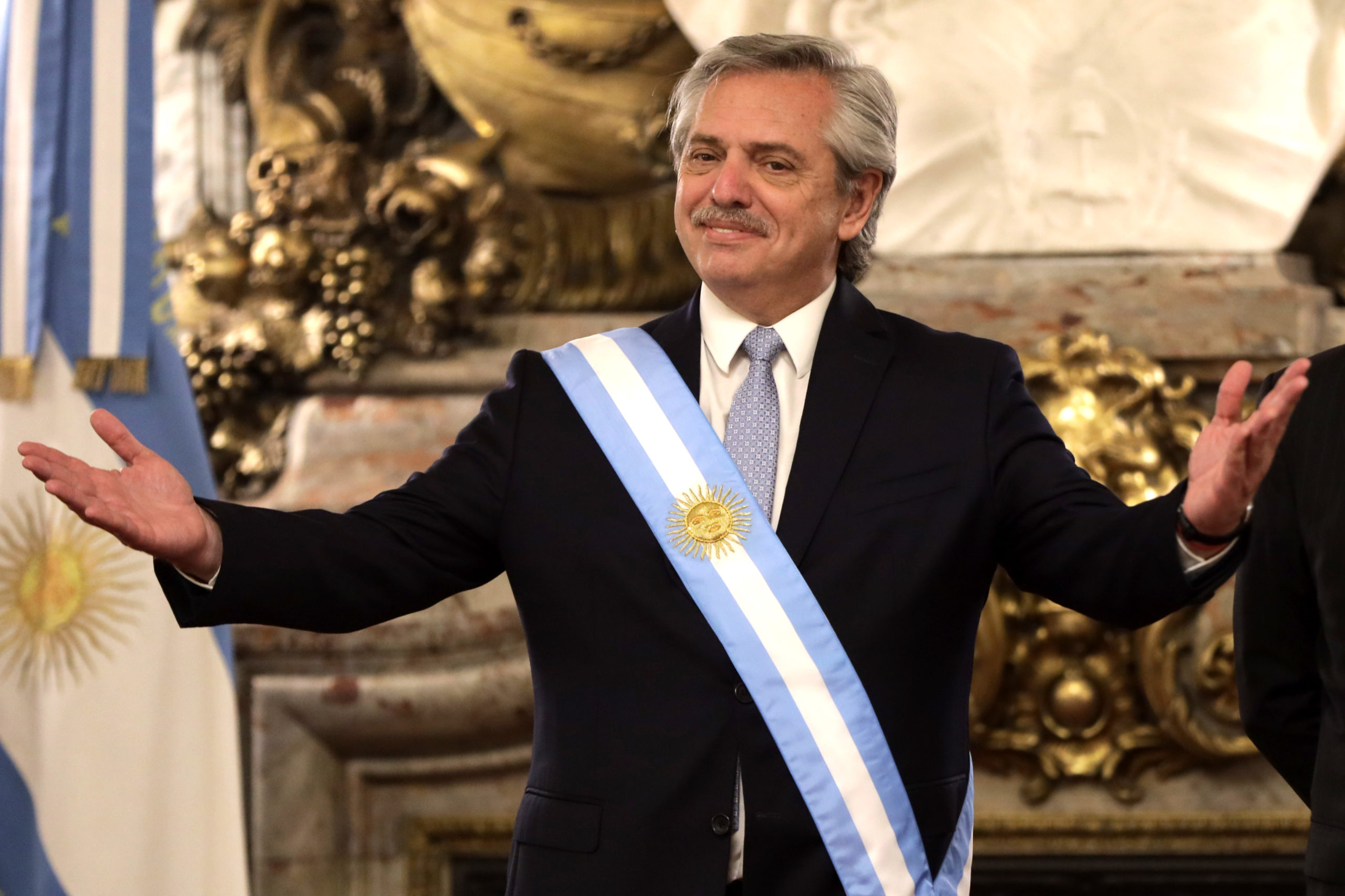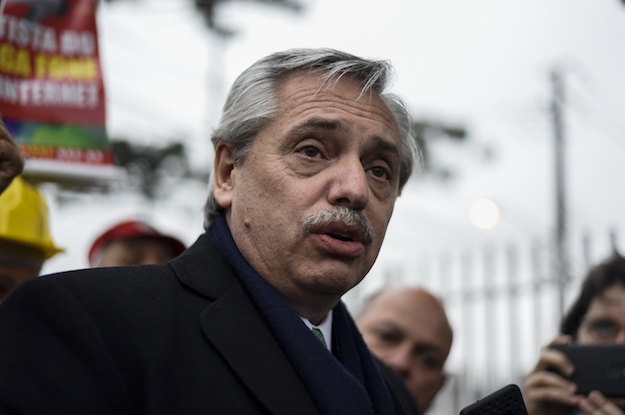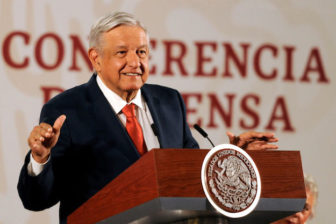Why did Argentina, Brazil and Mexico react so differently to COVID-19? Responses to this question are usually limited to whether their presidents – Alberto Fernández, Jair Bolsonaro and Andrés Manuel López Obrador, respectively – recognize the scientific facts and support ambitious measures to fight the pandemic and mitigate its economic impact. However, the divergence between Latin America’s three largest federations has also been fundamentally driven by deeper institutional dynamics.
Political science research can offer some clues to understand these developments, particularly when looking at three critical areas: political party identification, the relative power of governors vis-à-vis presidents, and welfare states.
Among the three countries, Argentina has offered the most rapid and comprehensive response to the virus, with a mandatory, nation-wide lockdown and travel ban, coupled with a generous social policy package for low-income workers and the informal sector. Brazil’s Bolsonaro exhibits one of the worst responses in the region in terms of lockdown measures. Yet the Brazilian Congress has passed a broad social policy package and increased the capacity of the health system. In Mexico, by contrast, AMLO has offered the least comprehensive response, with an absence of mandatory lockdown measures and an extremely limited plan to protect the low-income and informal sectors of society.
Since stay-at-home orders involve curtailing individual freedoms, one might expect that regime type – democracy versus authoritarianism – could explain differences. Yet all three countries are democracies. Their presidents’ ideological orientation doesn’t seem to be that relevant either. Mexico and Brazil, after all, are ruled by the left and the right, respectively, and in both countries the response to the outbreak has been far from satisfactory.
Labor informality could also explain why some countries have refrained from implementing nation-wide lockdowns that are especially difficult for informal sector workers. Yet this explanation is also insufficient, as levels of informality are similar in Argentina and Brazil.
Political science literature offers a few good explanations. The rootedness of political parties allows presidents to implement potentially unpopular nation-wide lockdowns. These measures have higher territorial uniformity when governors enjoy lower fiscal power relative to presidents. Also, the legacy of a strong welfare state can help implement more generous social packages to lower-income citizens.
The party is not over
A factor that differentiates Argentina from both Brazil and Mexico is the rootedness of the president’s party. Rooted parties are older, enjoy intense party identity, and show strong ideological linkages with voters. Their existence reduces the likelihood of an outsider rising to power. Fernández’s Peronist party is much more rooted than López Obrador’s MORENA, while Bolsonaro – after being affiliated with nine different parties during his career – currently belongs to none.
Argentina’s Peronist party has a strong and lasting identity, and crucially has maintained popular support among low-income voters and informal workers. This “natural” and systematic bloc of support has given Fernández leeway to enact a nation-wide lockdown, despite the economic costs it might entail, without opposition forces appealing to the economic anxiety of low-income and informal voters. Stronger party linkages may also convince low-income workers that Fernández’s actions are in their best interest.
With the partial exception of the Workers’ Party, Brazilian parties are unevenly rooted. Bolsonaro, in particular, won the presidency with an overtly anti-party message. In Mexico, MORENA is much younger than the Peronist party. In settings of weakly-rooted parties, the vote of low-income voters is more easily disputed, making costly policies like the nation-wide lockdown electorally risky.
Governors versus presidents
The fiscal power of governors helps explain why lockdowns have been more uniform across the territory in Argentina than in Brazil or Mexico. All three countries are federal systems. Yet our research on federalism and decentralization shows that not all federal systems are created equal: governors’ actual power vis-à-vis the federal government varies significantly in Argentina, Brazil and Mexico.
The Regional Authority Index, compiled by one of us, shows that governors (and also mayors) in Argentina are “fiscally weaker” than their counterparts in Brazil and Mexico. This means that the president in Argentina can exert more command over subnational governments and therefore can informally override or induce governors to act in a certain way.
Argentine governors’ weaker fiscal position vis-à-vis the federal government has resulted in a more territorially uniform response to the COVID-19 crisis. A nation-wide lockdown was imposed simultaneously on all 24 provinces (also endorsed by governors). Governors will be able to reassess and lift state-level lockdowns, but only with the approval of Fernández.
In Brazil and Mexico, by contrast, more fiscally powerful governors have challenged Bolsonaro and AMLO’s reluctance to enact nation-wide lockdowns. In both countries, governors have implemented stay-at-home orders, even though their presidents actively advised against such policies. The result has been that Brazil and Mexico have less consistent and less territorially uniform lock-downs than Argentina’s mandatory nation-wide quarantine.
Building on welfare states
Institutions also help us understand why the social packages offered so far by Argentina and Brazil are more generous than Mexico’s.
Research on welfare states in Latin America shows that Argentina and Brazil have developed notoriously stronger social policy regimes than Mexico. In conjunction with Chile, Uruguay, and Costa Rica, Argentina and Brazil have built the most advanced welfare states in the region. Their social policy regimes originated in the 1930s and 1940s, with unequal employment-based social insurance. While both countries underwent retrenchment during the 1980s and 1990s, since the 2000s they have expanded their social systems to the informal sector.
As shown in our research, this means that the more generous response in Argentina and Brazil is building on a legacy of generous social policy and existent universalistic social programs. Conversely, Mexico has a more segmented social welfare system to begin with. This has complicated efforts to expand social policy in response to COVID-19.
In Argentina, Fernández led efforts to expand social policy, whereas in Brazil the opposition in Congress pushed for a generous response. Importantly, in both countries, as our research shows, the expansion in government assistance is backed by powerful organized actors, such as unions and social movements.
Presidents’ views, interests and decisions have been decisive for Argentina, Brazil and Mexico’s responses to COVID-19. But an institutional analysis considering parties, the nature of federal systems, and welfare states is also critical to understand how and why the reaction to a common challenge has been so different in these three countries. Moreover, a closer look at political institutions shows how more developed welfare states and more rooted parties can strongly benefit countries facing a complex crisis such as COVID-19.
—
Niedzwiecki (@saranied) is an Assistant Professor of Political Science at UC Santa Cruz. Giraudy (@AgustinaGiraudy) and Pribble (@PribbleJenny) are Associate Professors of Political Science at American University and the University of Richmond, respectively.







